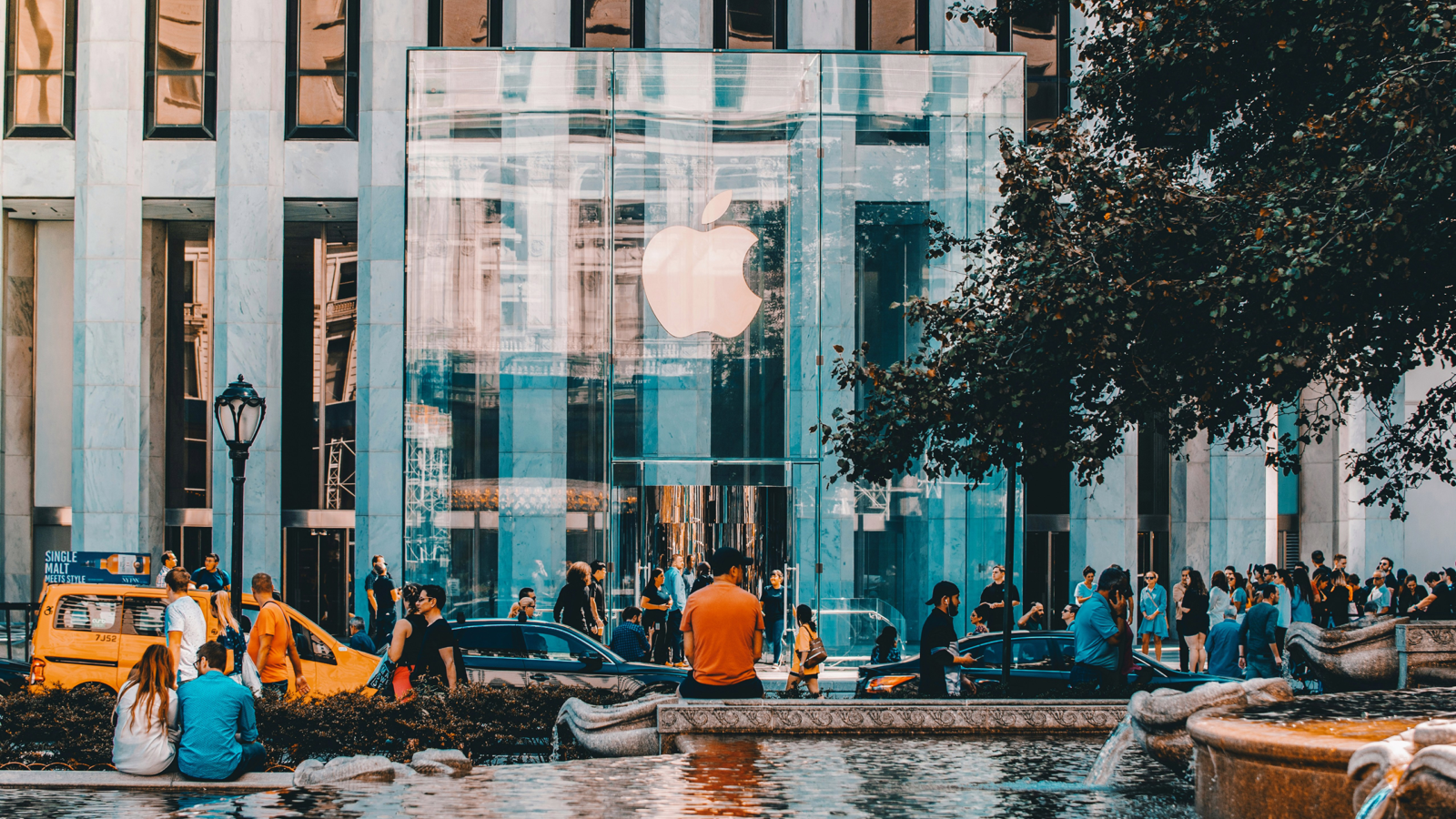Good morning.
We’re gonna just chill until you tell us what’s going on. That was more or less Federal Reserve Chair Jerome Powell’s message to markets Wednesday, explaining the central bank’s decision to hold the federal funds rate at 4.25%-4.5% after trimming a full percentage point over the final months of 2024.
Powell said data suggests interest rates are no longer hampering growth, allowing the Federal Reserve to take a step back, monitor the trajectory of inflation, and let the policies of the new Trump administration “be articulated before we can even begin to make a plausible assessment of what their implications will be.”
It’s kind of what everyone expected him to say. Besides, no one is going to pelt the Federal Reserve with eggs in protest at a time when a dozen will set you back $4.
Starlink, Apple, and T-Mobile Bring Satellite Service to Smartphones

It’s a match made in heaven — or at least a meaningful rendezvous somewhere in the exosphere, which is roughly 375 miles above the earth’s surface.
On Wednesday, Bloomberg spotted a little-noticed feature in Apple’s latest iOS software update released earlier this week: The ability for iPhone users on T-Mobile’s network to tap into satellite coverage courtesy of Starlink. It’s a quantum leap for Starlink in its push to expand its still limited direct-to-device coverage.
Sky High Ambition
This isn’t the first foray into direct-to-cell satellite service for any of these three companies. Back in 2022, Apple teamed with satellite operator GlobalStar to launch its Emergency SOS feature, which allows users to send texts and contact emergency responders when out of range from traditional cell service (say, when on a hike or out camping). And T-Mobile and Starlink, a subsidiary of SpaceX, already have a partnership in place — but it’s been restricted to just a select line of Android-powered Samsung devices.
Now the trio will allow any T-Mobile iPhone user running iOS 18.3 (and presumably future versions) to tap the Starlink network, marking a massive expansion for direct-to-device services in the US. And even as the feature remains in a beta phase for now, it’s already looking like a big splash:
- In a message sent to users auto-enrolled in its Beta program, T-Mobile said they could now text “from virtually anywhere” using the feature; Elon Musk said on X that users should also be able to access medium-resolution photos, music, and podcasts as well. In an earnings call Wednesday, T-Mobile CEO Mike Sievert said that following the beta period, the service will be included as a free perk only for users subscribed to its most premium carriage plans — making it a bet that some customers will opt for an upgrade for the expanded coverage.
- Starlink also claims it will deliver better service to iPhone users than GlobalStar, which requires users to hold their phones up to the sky to connect to its network. Unsurprisingly, shares of GlobalStar tumbled nearly 18% on Wednesday; that’s a bit of a ding to Apple, which took a 20% ownership stake worth $400 million in the company in a deal struck last May.
Intelligent Design: The Starlink partnership was another small win for Apple, a.k.a., the Big Tech firm that entirely avoided this week’s DeepSeek-triggered tech rout. In fact, Apple’s share price has jumped nearly 7% since the start of the week, as its previously modest approach to AI investment starts to look a little smarter in a world after DeepSeek has proven AI models can be made efficiently enough to run natively on smartphones. “In a world where consumer large language models become commoditized, distribution platforms become key assets, and Apple owns the most valuable consumer technology distribution platform that exists today,” Morgan Stanley analysts wrote in a note to clients on Tuesday.
International Expansion Powers “Unlisted” Stock Price Change

Co-ownership is a trend growing 21% annually in America – but it is international growth that is driving Pacaso’s share price to change on February 27.
As the leader in the $1.3T vacation home market, Pacaso’s international success highlights its scalable model.
Their first Paris property sold out so fast that they doubled down and immediately purchased another. In Cabo, they’ve added seven homes. This expansion is truly just beginning. That’s why they formed a new partnership with a private UK lender to foster additional growth.
With over $100M+ in gross profits and proven scalability, it’s no wonder SoftBank already invested. Join them for just $2.70/share before February 27.*
OpenAI Suggests DeepSeek Illicitly Used ChatGPT to Build its AI
We regret to inform you that we have yet another story about DeepSeek, but don’t worry — this one’s pretty funny.
On Tuesday, Bloomberg reported that Microsoft and OpenAI were investigating whether DeepSeek — the AI chatbot app that took the world by storm on Monday and put a lot of egg on the face of US tech companies including OpenAI and Microsoft — had illicitly used output from ChatGPT to train its AI model. Then, on Wednesday, OpenAI told the Financial Times that it has some evidence of this being the case.
Can the Pot Sue the Kettle?
To be clear, OpenAI has not yet come down hard saying DeepSeek definitely stole its intellectual property. It told the FT it had seen some evidence of so-called distillation from accounts it suspects are linked to DeepSeek, but it declined to provide the publication with any of said evidence. Distillation is when a smaller AI model essentially gleans information from a larger model, e.g. by using text generated by the bigger model. “As a practice in research and development, it is very common and often leads to advances in the field,” Professor Brent Mittelstadt, Director of Research at the Oxford Internet Institute, told The Daily Upside.
There’s a fair amount of schadenfreude going around about OpenAI complaining that DeepSeek used text ChatGPT generated to benefit itself. After all, that’s pretty much the exact argument being leveled against OpenAI by publishers including The New York Times. However, OpenAI really can’t fall back on copyright law:
- Dr. Michael Veale, an associate law professor at University College London, told The Daily Upside that the hinted-at “distillation” isn’t really an IP issue. “OpenAI will likely find it difficult to claim copyright in the outputs from its models, so intellectual property is not going to be a very strong regime to guard against misuse of its outputs,” Veale said.
- “It is still an open question as to whether outputs of generative AI can be copyrighted or protected under IP law,” Mittelstadt said. “A consensus will likely emerge in the coming years. But for the moment, it would be incorrect to say outputs of ChatGPT or other generative models are protected under IP law by default.”
The most stalwart attack OpenAI would have is breach of contract: When you sign up for ChatGPT, you agree not to use its output for training your own AI model. In any case, Veale said, the fact the two companies are based in the US and China would complicate enforcement. Mittelstadt added DeepSeek could have been using ChatGPT legitimately: “It is possible that DeepSeek was generating outputs for a variety of other purposes, for example to benchmark their model against OpenAI’s.” So until OpenAI busts out some hard evidence, there’s no way of knowing.
Timing is Everything: President Trump’s artificial intelligence czar, David Sacks, publicly backed the theory that Chinese companies had distilled American AI tech on Fox News on Tuesday. Still, “it seems more likely that OpenAI is running this as a publicity stunt to mitigate the perception that DeepSeek has outpaced them in innovation, and instead frame themselves as still providing an essential input that the company cannot replicate without them,” Veale said.
Hypersonic Missiles Startup Raises $100 Million for “Non-Nuclear Deterrent”
Hypersonic refers to speeds that are five times faster than the speed of sound— or Mach 5, a.k.a. 3,836 miles per hour. In short: fast. It also represents an area where US military research and development has been caught flat-footed.
Defense startup Castelion, a developer of hypersonic missile systems, announced a $100 million fundraising round on Wednesday that will ideally help engineer a solution.
Playing Catch-Up
Beijing has led the world in the development of hypersonic missiles, Pentagon officials have warned. Russian President Vladimir Putin called a national television address in November to boast about the first use of his country’s hypersonic “Oreshnik” missile in its ongoing invasion of Ukraine.
But where there’s an R&D gap in America, a handful of Silicon Valley startups trying to bridge it are almost certain to follow — backed by venture capital, of course. Hypersonic aircraft company Hermeus and propulsion company Ursa Major are among those to emerge as hundreds of millions in investments have poured into the space.
Castelion is unique among the bunch because it’s developing a complete weapons system, including the aircraft, replete with “affordable, mass-produced hypersonic long-range strike weapons.” It is also considering building the warheads used by this “non-nuclear deterrent.” With the science a known, and the situation now a matter of playing catchup, its biggest hurdle may be overcoming a slow-to-adjust culture in the federal bureaucracy:
- Funders have opened their doors: VCs were predicted to pour $3.9 billion into defense tech startups in NATO countries last year, quadrupling the amount in 2019, according to Dealroom data. Over the past five years, 83% of NATO defense tech funding has come from US venture capital firms.
- The Pentagon has kept its doors closed: Venture-backed defense companies have received only about 1% of the more than $400 billion contracts awarded by the Department of Defense for every year, according to defense industry data company Govini. Almost all of the money goes to a small circle of mega-sized defense contractors that includes Lockheed Martin, Northrop Grumman, and General Dynamics.
Another Round: Castelion raised a mix of debt and equity, including $30 million in debt from Silicon Valley Bank, which is now a subsidiary of First Citizens after its 2023 collapse. Lead investor Lightspeed was joined by Andreessen Horowitz, also known as a16z and already an investor in naval tech firm Saronic and autonomous defense systems developer Anduril.
Extra Upside
- Brake Check: Tesla shares slip as fourth-quarter earnings call reveals 8% revenue decline in vehicle sales.
- Golden Parachute: Two years after its failed takeover attempt, Frontier Airlines places another bid for Spirit Airlines.
- AI-Proof Your Business: When you tell your grandkids about the old business tools you used to use, they won’t believe you. AI is reshaping biz opps wholesale, and the revolution is well underway. Learn 5 crucial skills to reinforce your career or business with NetSuite’s AI Survival Guide.**
** Partner
Just For Fun
Disclaimer
*This is a paid advertisement for Pacaso’s Regulation A offering. Please read the offering circular at invest.pacaso.com.

